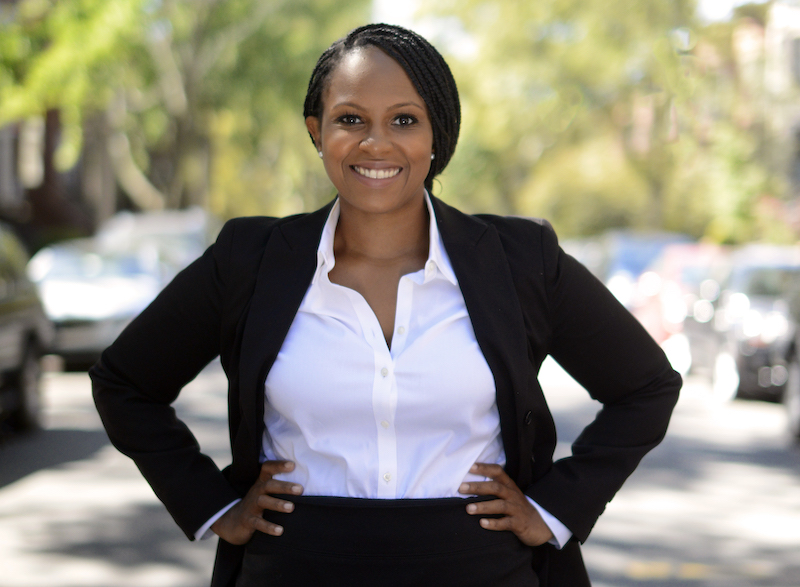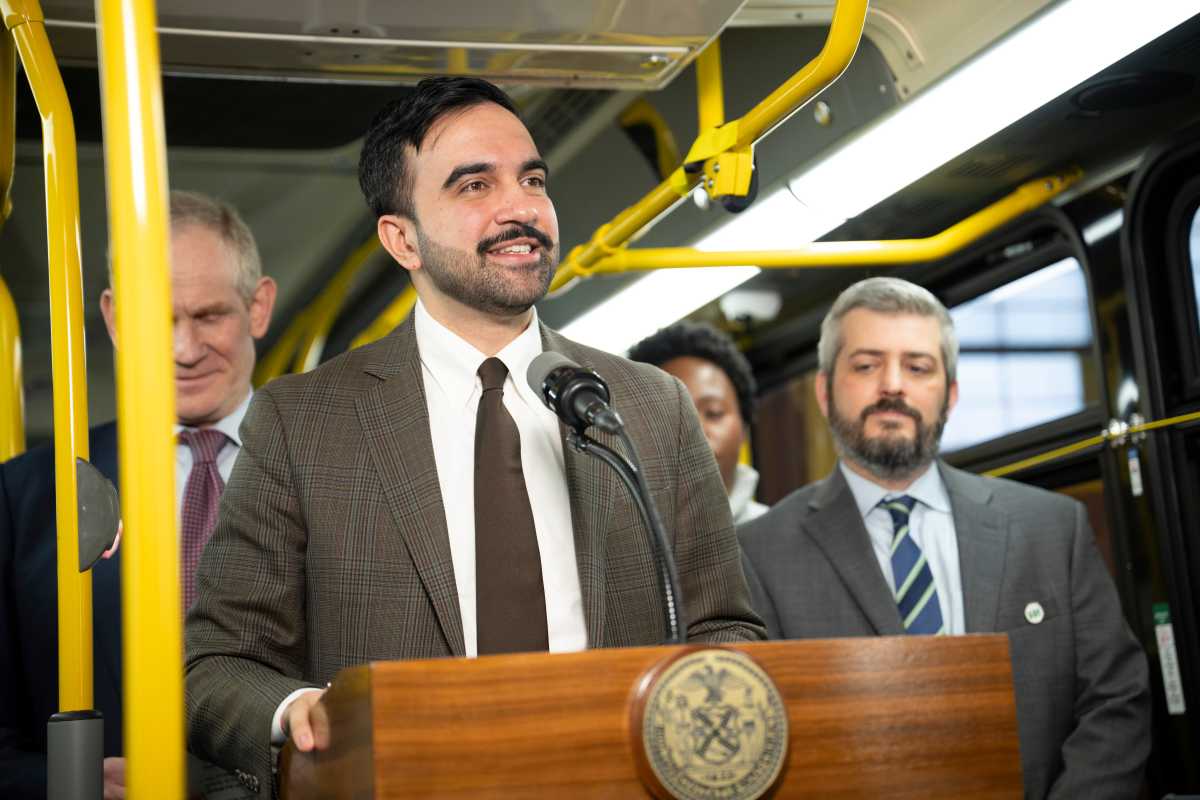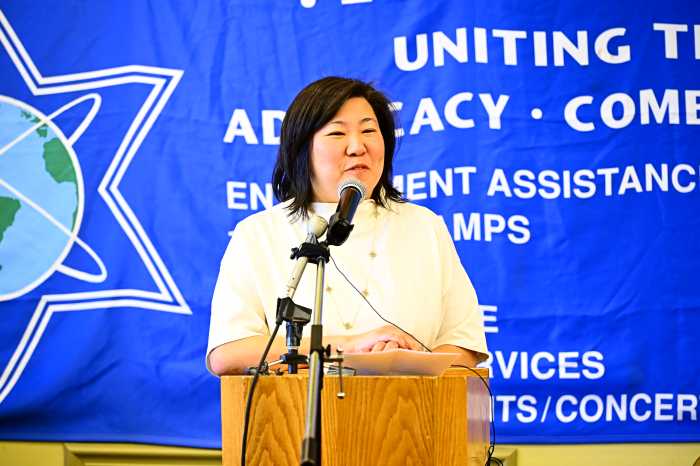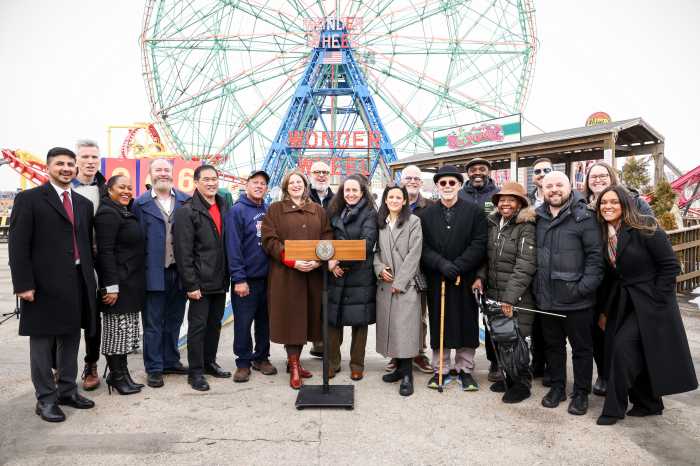Candidate Kenya Handy-Hilliard is running for District 40’s council member seat, currently held by Councilmember Mathieu Eugene (D-Prospect Lefferts Gardens, Ditmas Park, Flatbush and parts of East Flatbush, Kensington, Midwood and Crown Heights).
Handy-Hilliard, who is in the running with 10 other candidates, recently quit her “comfortable” job at the Department of Investigation to launch her campaign full-time.
“It wasn’t until COVID, you know, we were behind the scenes,” said Handy-Hilliard. She said it was alarming that agencies like the Office of Emergency Management (OEM) didn’t have any tangible, health pandemic protocol.
“And then George Floyd happened, and it was kind of frustrating being a Black woman with Black children and wife to a Black husband. There’s really something wrong when one agency has four different agencies that have oversight over it and it’s still not working in a way that’s creating greater community trust or engagement with the NYPD,” said Handy-Hilliard, about risking unemployment to run for change.
Handy-Hilliard was raised in Brooklyn’s Prospect Lefferts Gardens since she was 3-years-old, and has been in the political and public servant field for a long time.
“I learned first-hand about the inner workings of local government, better understanding where the pitfalls and vulnerabilities of city government lie and why it so often fails its citizenry. I was frustrated by the lack of government transparency and want to use my skills and passion to ensure that the government is doing what it’s supposed to do: work for the people,” said Handy-Hilliard.
She began working for elected officials including Harlem’s US. Rep Charles B. Rangel (NY-15) and Brooklyn’s US. Rep Yvette Clarke (NY-09) in Washington, D.C, before moving on to serve as the Brooklyn Director in the City Comptroller’s Office and then as Brooklyn, Queens and Staten Island Director at the New York State Office of the Attorney General.
During her stint in Clarke’s office, her main contribution was building a comprehensive immigration reform package, called the Haitian Emergency Life Protection Act, which allowed Haitian nationals affected by the earthquake of 2010 to get a green card if they were in the process already.
“Although that didn’t pass, I think my pride and joy is that Obama took that language and created the Haitian Family Reunification Parole program in 2014, which supported many Haitians in my own community. So that was awesome,” said Handy-Hilliard.
She said she plans to champion equitable economic recovery measures, community-led housing development and homelessness solutions, an overhaul of the education system, and small business recovery. “You have all these ‘affordable’ housing units that are empty, and the only reason they’re there is because private developers were giving the community something for the financial windfall with this development. And so is there a way to use this temporary space to house our homeless population and permanently house them in these units. Because if the cost can be transferred to the benefit then I feel like it’s a larger mechanism that we can create wrap-around services to help maintain people in these homes,” said Handy-Hilliard. “If not, then what are people losing their skyline for?”
Handy-Hilliard said a complete revamp of the education system and social and youth services feeds into her stance on public safety as well as violence interrupter programs. She said it’s important to get out of a punitive system and lean more towards restorative methods that integrate people back into society.
“If not then we’re only feeding the criminal justice system. So education, making sure they have artistic and critical thinking skills that one needs to become the CEO and not just the worker,” said Handy-Hilliard. “Speaking the language of at-risk-youth and others while creating other opportunities for them other than acting out and it turning into a violent incident.”
She plans to keep advocating for immigrant communities in hers and surrounding neighborhoods and making sure people have language access and help getting to general resources.
“You have non-profits on the ground who speak the language, who translate the language, especially in the dialect that can be most understood, and the city can contract with them. That money can actually go to the community,” said Handy-Hilliard.










